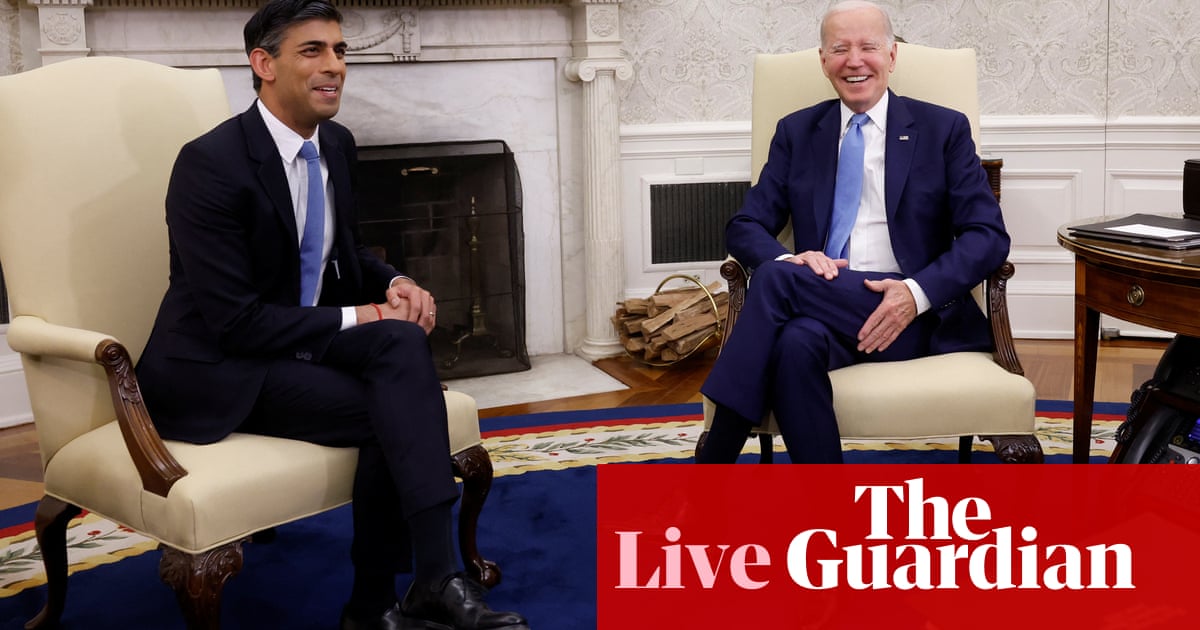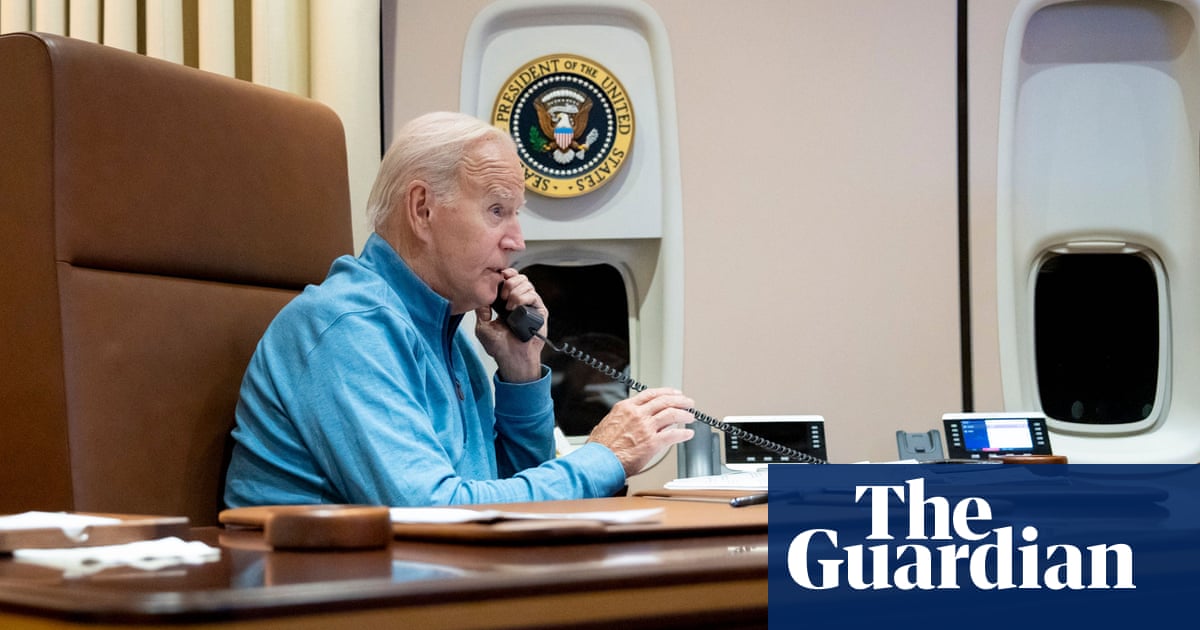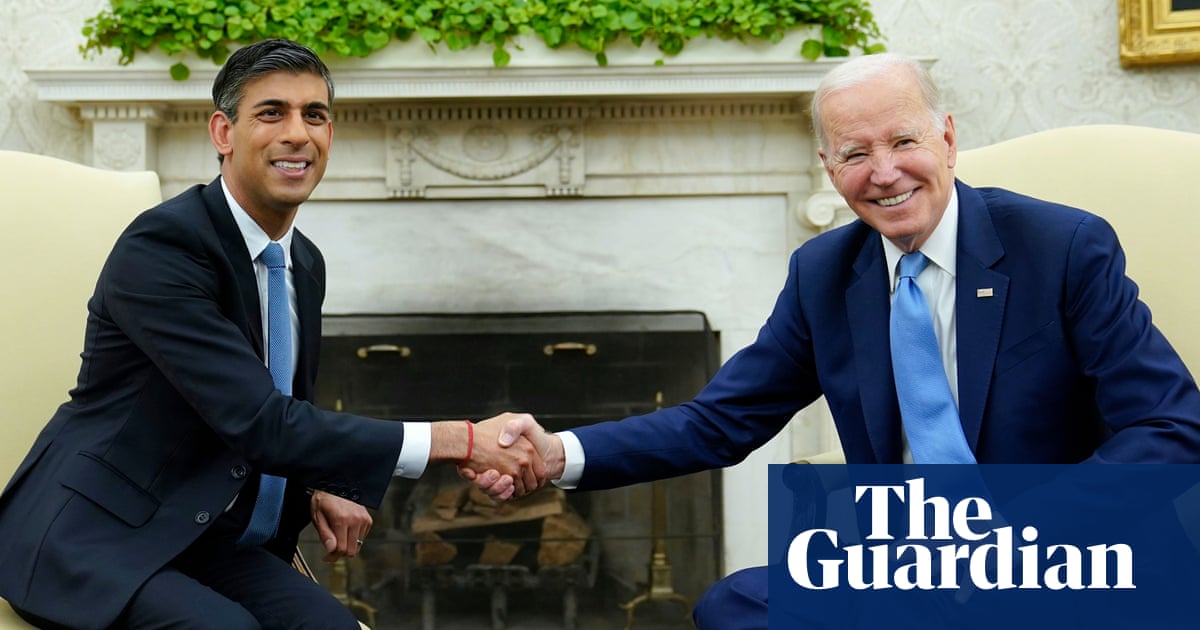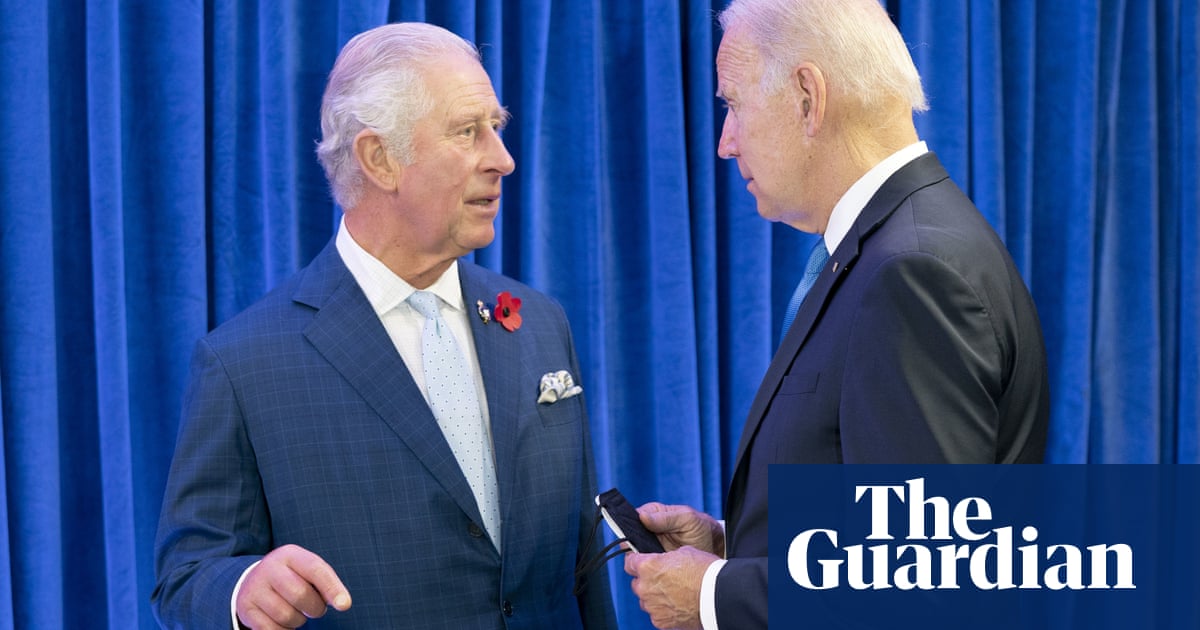
Joe Biden and Rishi Sunak have different political philosophies and personas, yet they are both hoping that they can “re-spark” the special relationship after years in the deep freeze.
Whereas Biden was first elected to the US Congress in 1972 and is a left-of-center Democrat, Sunak is a conservative former banker who only became a UK member of Parliament in 2015. Add to this, too, that Biden is about double Sunak’s age.
Indeed, one of the main commonalities between the two is that they both face big election battles in 2024. Sunak is seeking an unprecedented fifth term for the Conservatives against a resurgent Labour Party; while Biden may yet face off against ex-president Donald Trump in a 2020 presidential rematch.
Yet, despite their significant contrasts, there is a possibility that Biden and Sunak could have the most constructive meeting this coming week of any two UK and US leaders since Barack Obama’s presidency. Sunak wants better relations with the US after they were strained with many anti-Brexit Democrats, including Biden, by the UK’s departure from the EU. And their initial meetings, including at the G7 summit in Japan, have been cordial.
This is not to have high expectations of the meeting, but more that the bar was set so low by Sunak’s predecessors in Downing Street, Boris Johnson and Liz Truss, both of whom Biden was skeptical about, that the US president is willing to work as constructively as possible with the prime minister given the ongoing emergency of the Ukraine war, and the need to reunify the Western alliance. For instance, Biden has noted that Sunak is a Stanford University graduate, and asked for a visit to the home the prime minister still owns in Santa Monica.
While Biden has a different political philosophy to Sunak, the UK prime minister knows he badly needs to try to rebuild relations with Washington. For all of the president’s perceived shortcomings in his eyes, Sunak knows Biden has often been a defender of UK interests. He was, for instance, a staunch supporter of London over the Falklands War, which divided the Reagan administration, despite the-then president’s deep admiration of Margaret Thatcher.
The two leaders will discuss not just Ukraine, but also broader global economic and political challenges including de-risking supply chains, transitioning to zero-carbon economies, China, Russia plus the forthcoming NATO leadership summit in Lithuania in July. Moreover, the UK has a series of specific asks, including around Sunak’s plans to make the UK a global hub for developing international regulation of artificial intelligence.
Despite their significant contrasts, there is a possibility that Biden and Sunak could have the most constructive meeting of any two UK and US leaders since Barack Obama’s presidency.
Andrew Hammond
Specifically, Sunak intends to ask for US support for the UK to play a leading role in coordinating the formulation of global guidelines for its AI’s use. The UK government issued a white paper on AI this year, which spoke mainly of the benefits rather than the risks it poses, despite some experts warning that the technology could present an existential threat to humankind.
On trade, many UK Brexiteers have been disappointed that a deal with the US has not been possible given the boost it would give to the “global Britain” agenda, even though bilateral trade currently stands at about £280 billion already. So Sunak has not given up hope that such an agreement is possible in a second Biden term, or potentially the first administration of a Republican successor from 2025 onwards.
In the meantime, the UK is pursuing a “multi-track” approach. Firstly, it is focusing on targeted deals on key UK exports, for example, on Scotch whiskey.
Secondly, UK policymakers are seeking broader deals with specific states with agreements already signed with North Carolina, South Carolina and Indiana. The government is also seeking closer partnerships with other states, including California, Texas and Utah.
There are also other key challenges in bilateral relations too, including the fact that Biden has long been opposed to Brexit, not least given his concerns about the implications for the 1998 Good Friday peace process, of which the US is one of the guarantors. While the US president has welcomed the Windsor Framework agreed between the EU and UK to try to tackle the challenges of the previous Irish protocol, the Northern Irish unionist community remains opposed to this diplomatic breakthrough and so problems remain.
What Sunak is now striving for, amid these irritants, is that he and Biden continue to largely put aside political differences and forge a constructive partnership building on the traditional ties between the two nations founded on demographics, religion, culture, law, politics and economics. This will be supplemented by longstanding security cooperation, including the new AUKUS deal with Australia, which has traditionally been at the core of the relationship given the close partnership between the two nations in areas like intelligence.
Amid the multiple uncertainties ahead, Sunak is likely therefore to seek to play the role of a trusted, albeit junior, partner to Biden in a bid to get close to him to try to make the relationship work as smoothly as possible. This may provide protections if relations get strained during what is a big US and UK election year in 2024.
However, while seeking the potential upside in the relationship, Sunak would be wise not to overestimate the UK’s ability to shape US power. He should also not be blind to the prospect that Biden’s outlook may — ultimately — care significantly less for core UK interests than in the past given his more pro-EU outlook than Trump.
• Andrew Hammond is an associate at LSE IDEAS at the London School of Economics.
Disclaimer: Views expressed by writers in this section are their own and do not necessarily reflect Arab News" point of view












